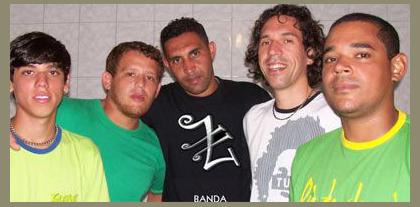 Zero Hora
Zero Hora
Zero Hora: The Pioneers of Brazilian Punk and the Controversy that Defined Them
In the late 1970s, amid the political and social turmoil of Brazil's military dictatorship, emerged Zero Hora, a pioneering punk band that would ignite a musical and cultural revolution.
Formation and Early Challenges
Formed in 1978 by vocalist Guttemberg Guarabyra, guitarist Ronaldo Lemos, bassist Paulo César and drummer Ney Mello, Zero Hora hailed from the industrial city of São Paulo. Their raw, confrontational sound and provocative lyrics challenged the prevailing norms of Brazilian music.
Initial performances were met with resistance and censorship. The band's name, meaning "zero hour," was deemed too subversive, and their concerts were often raided by police. Undeterred, Zero Hora refused to compromise their artistic vision.
Discography and Legacy
In 1981, Zero Hora released their debut album, "16," named after their iconic single that remains an anthem for Brazilian punks. The album's explosive energy and nihilistic themes resonated with a generation disillusioned by the dictatorship.
Over the next decade, Zero Hora released a string of acclaimed albums, including "Seja Marginal, Seja Herói" (1984) and "Guerra Civil Canibal" (1986). Their music inspired countless bands and helped shape the landscape of Brazilian rock.
Controversies and Impact
Zero Hora's provocative lyrics often sparked controversy. In the song "Opressão," they accused the military government of torture and repression. The band's outspoken stance made them targets of both the authorities and extreme right-wing groups.
Despite the challenges, Zero Hora's message of rebellion and social consciousness resonated with a wide audience. They became symbols of resistance and counterculture, and their music played a significant role in the movement that eventually led to the end of the dictatorship.
Members and Post-Punk Era
The original lineup of Zero Hora dissolved in 1989. Guttemberg Guarabyra embarked on a solo career, while the other members continued in various musical projects. The band reunited briefly in 1997 and again in 2017 for a series of anniversary shows.
Zero Hora's legacy continues to inspire new generations of musicians. Their raw punk sound and fearless lyrics have left an indelible mark on Brazilian rock and helped shape the country's cultural landscape.
In the late 1970s, amid the political and social turmoil of Brazil's military dictatorship, emerged Zero Hora, a pioneering punk band that would ignite a musical and cultural revolution.
Formation and Early Challenges
Formed in 1978 by vocalist Guttemberg Guarabyra, guitarist Ronaldo Lemos, bassist Paulo César and drummer Ney Mello, Zero Hora hailed from the industrial city of São Paulo. Their raw, confrontational sound and provocative lyrics challenged the prevailing norms of Brazilian music.
Initial performances were met with resistance and censorship. The band's name, meaning "zero hour," was deemed too subversive, and their concerts were often raided by police. Undeterred, Zero Hora refused to compromise their artistic vision.
Discography and Legacy
In 1981, Zero Hora released their debut album, "16," named after their iconic single that remains an anthem for Brazilian punks. The album's explosive energy and nihilistic themes resonated with a generation disillusioned by the dictatorship.
Over the next decade, Zero Hora released a string of acclaimed albums, including "Seja Marginal, Seja Herói" (1984) and "Guerra Civil Canibal" (1986). Their music inspired countless bands and helped shape the landscape of Brazilian rock.
Controversies and Impact
Zero Hora's provocative lyrics often sparked controversy. In the song "Opressão," they accused the military government of torture and repression. The band's outspoken stance made them targets of both the authorities and extreme right-wing groups.
Despite the challenges, Zero Hora's message of rebellion and social consciousness resonated with a wide audience. They became symbols of resistance and counterculture, and their music played a significant role in the movement that eventually led to the end of the dictatorship.
Members and Post-Punk Era
The original lineup of Zero Hora dissolved in 1989. Guttemberg Guarabyra embarked on a solo career, while the other members continued in various musical projects. The band reunited briefly in 1997 and again in 2017 for a series of anniversary shows.
Zero Hora's legacy continues to inspire new generations of musicians. Their raw punk sound and fearless lyrics have left an indelible mark on Brazilian rock and helped shape the country's cultural landscape.